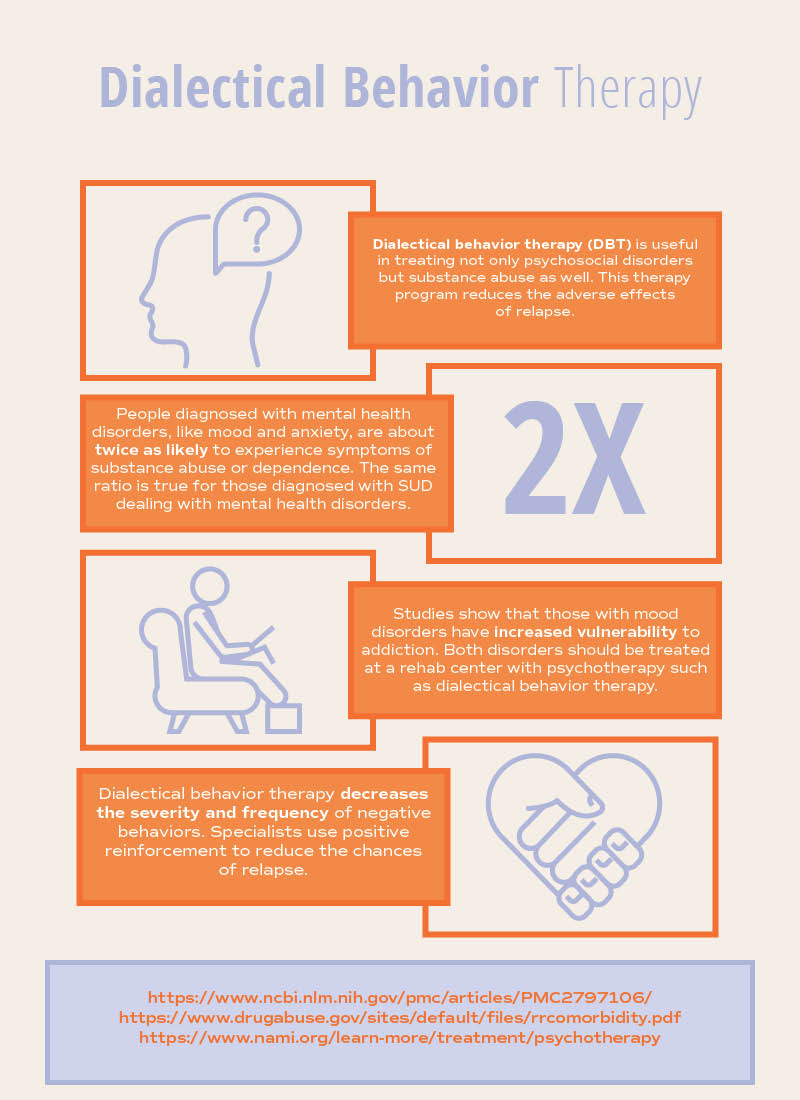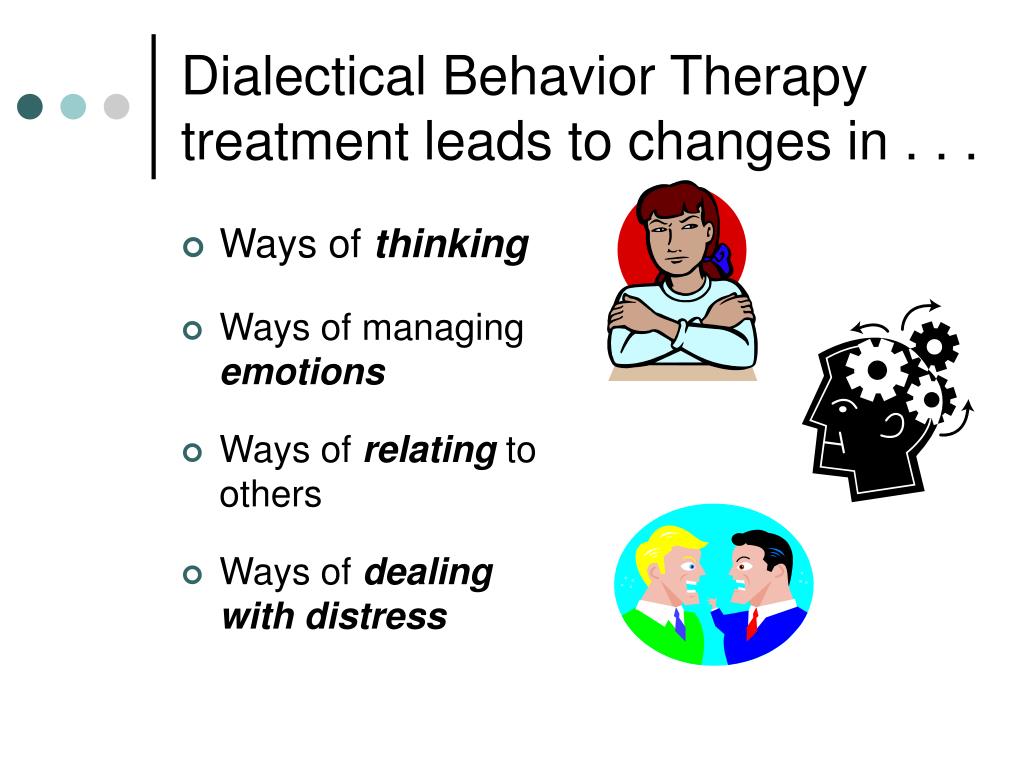


They tailored the session topics to make them better fit the needs of adults with ADHD. By-the-book DBT is a group treatment, with each group member also having an individual therapist for additional support to personalize the use of these skills in life situations.Īlexandra Philipsen, M.D., and Bernd Hesslinger, M.D., as well as their colleagues in Germany, saw many similarities in the challenges of BPD and adult ADHD, such as impulsivity, low self-esteem, and difficulties with emotional self-control.
#Dialectic behavior therapy series
These and other coping strategies are presented in a series of skill-based modules in weekly group sessions, with each session focused on a particular skill. DBT skills include fostering the “wise mind” (the balance between the logical and emotional minds), self-soothing activities, and acting in ways that are in contrast to the immediate, distressing emotion - for instance, smiling during an upsetting situation. DBT rests on scientifically sound behavioral and cognitive strategies, and incorporates skills like mindfulness and acceptance principles. Linehan’s DBT is now the go-to treatment for improving emotional regulation skills, in those diagnosed with anxiety and ADHD. Why Is DBT Becoming the Go-To Treatment for ADD? BPD is characterized by unpredictable mood swings and reckless behaviors, chaotic relationships, extreme reactions to stress, and a chronic risk for self-harm and suicide. DBT was designed to withstand bouts of emotional turmoil - including self-harming behaviors, such as cutting - for those diagnosed with borderline personality disorder (BPD). It is the brainchild of Marsha Linehan, Ph.D., ABPP, a professor of psychology at the University of Washington and founder of The Linehan Institute. Wasn’t DBT Designed to Treat BPD?ĭBT was used to treat other mental conditions before it was adapted to treat adult ADHD. Read on to learn the history of DBT, why it works for ADHD, and how it might help you. DBT offers advice to improve self-regulation skills that may be helpful for those who do not respond to other approaches. It is not a new therapy, having come on the scene with other CBT-oriented treatments for adult ADHD in the early 2000’s. DBT focuses on the social and emotional challenges in one’s life. So she turned to an important innovation within the CBT family of treatments: dialectical behavior therapy (DBT). But unfortunately, even though these treatments are effective for many adults, they don’t work for everyone. And they illustrate the paradox of psychosocial treatment for ADHD: Behavior change requires specialized skills and strategies, but, as most of us know, implementing them is tough for adults with ADHD.Īmanda needed other options for her persistent problems. Adults who take medication often find that adjunctive approaches, such as cognitive-behavioral therapy ( CBT) and coaching, help them better manage the effects of ADHD on their lives. One of the heartening advances in treating ADHD is the increasing number of non-medical options available to people looking to improve their lives. Progress in Non-Medical Treatment Options for ADHD Amanda wants to work through these behaviors - for herself and for her relationship - but she needs a new approach to help her. She worries that her boyfriend will leave her because he is tired of her defensiveness when she is forgetful and her unloading her work-related stress on him. She takes medication and sees a coach to help her with organization and time management skills, but her mood swings are her biggest remaining problem - snapping at others when feeling overwhelmed or impulsively taking on too many responsibilities when she is feeling better.


 0 kommentar(er)
0 kommentar(er)
